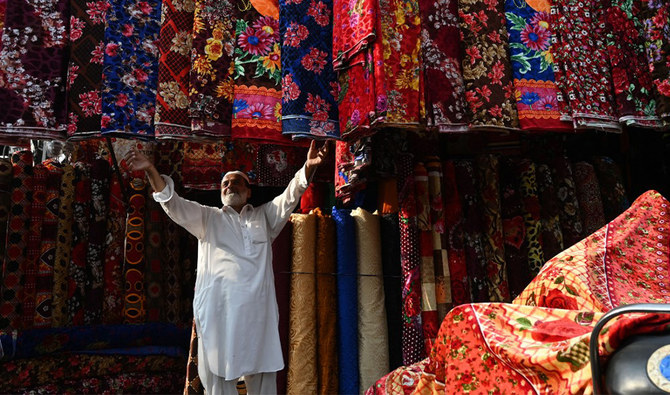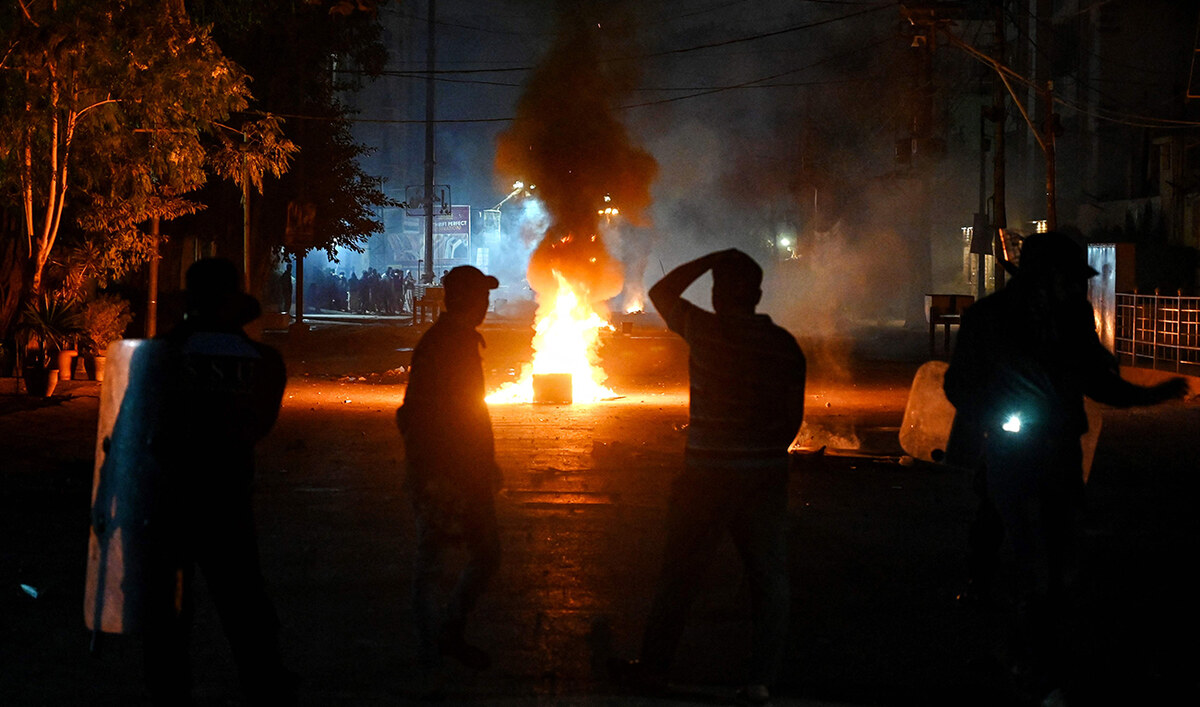KARACHI: Pakistan’s commerce chief Abdul Razak Dawood said on Wednesday the government had approved Textiles and Apparel Policy, 2020-25, with the objective of ensuring sustainability of textile sector exports.
Last week, the Economic Coordination Committee (ECC) of the cabinet had approved the revised Textiles and Apparel Policy, 2020-25, after incorporating a few changes along with an implementation report.
“One of the main objectives of the policy is to give the textile industry internationally competitive electricity and gas rates to enhance the exports,” Dawood said while addressing a news conference in Islamabad.
“In the textile policy, we are assuring businesses that we will provide them internationally competitive prices,” he continued. “We will maintain tariff rationalization throughout the policy period.”
The commerce chief said the salient features of the policy also included export growth of value-added products along with geographic diversification.
He also maintained the country would achieve $21 billion of textile exports by the end of the current fiscal year.
“We have made good progress which means there will be a growth in textile exports of $6 billion by the end of June 2022,” he said. “We will grow by 26 percent this year.”
Pakistan posted its highest textile exports during the first seven months of the ongoing fiscal year (7MFY22). The sector’s exports increased by 25 percent to $10.93 billion during the July 2021-January 2022 period, according to the Federal Bureau of Statistic.
Pakistan’s textile sector provides employment to about 40 percent of industrial workforce in the country, consumes almost 40 percent of banking credit for manufacturing and accounts for 8.5 percent of the gross domestic product.
The textile sector which is the single largest consumer of domestic cotton contributes 62 percent share in the overall export of the country, according to All Pakistan Textile Mills Association (APTMA).
Pakistan has previously announced two five-year textiles policies for 2009-14 and 2014-19 to increase its exports to $25 billion and $26 billion, respectively. However, it could not manage to meet these targets in the past.
The third policy was approved in March 2020 by Prime Minister Imran Khan, though it is yet to be officially implemented.
Dawood said on Wednesday the country’s share in the global textile products was only 1.8 percent, adding there was huge opportunity for sectoral growth.
“Pakistan stands at the fifth position for selling cotton yarn, second position for selling denim fabric, and second position for selling cotton cloth in the world,” he informed.
The commerce chief added the value of one pound of cotton was $2 about 10 years ago, adding it was $8 today.
“This means we are doing better with one pound of cotton,” he said. “It is a very good sign for us.”
Calling for product and geographic diversification, he noted that much of the country’s exports were confined to only 10 countries.
“We are exporting 75 percent of all our goods to only 10 countries,” he said. “This means that we have not achieved the required level of diversification. Only 15 tariff lines in the customs book constitute 50 percent of our exports.”
Dawood informed the textile sector was in the process of increasing its production capacity with import of machinery, saying the main industrial players were spending $435 million for the purpose and had already brought 50 percent of these advanced products to the country.





















